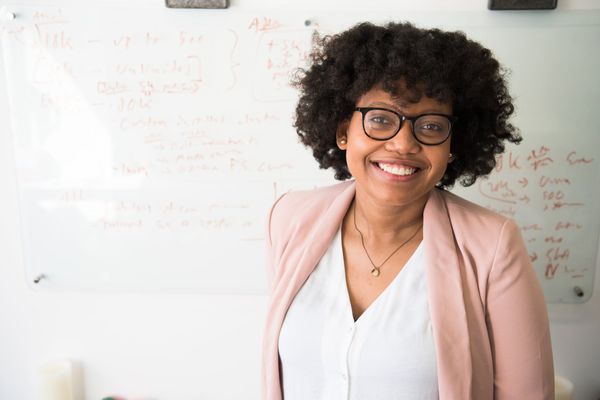I remember that Tuesday morning I saw my first full time Black teacher. It was eleven o’clock, my first lecture in Furman Hall. I remember seeing everything that my future could be. I had never seen myself reflected in that space or having a PhD. Prior to this instance I didn’t contemplate the importance of having a Black teacher. It felt strange to be liberated in this way. As I sat in class for the African-American Diaspora Minor, a million and one questions ran through my mind. But the most pressing one was, where are all the Black teachers and where have they been all of my life?
I am from Philadelphia, a city full of light, history and culture. There are people from all walks of life. Despite the diversity, Black teachers were rare. I attended a private school, just west of the city limits. It was a prestigious school in the area and almost entirely white. As a result, I had grown accustomed to being the only Black student in the room (I was actually the only one in my class for the first few years). I had never seen a Black teacher walk through those halls. Having no teacher that looked like I do or had experienced the world like I did meant that I didn’t have a mentor that could guide me through my educational journey, or that could help me understand what I should expect as a Black student. I had to do a lot of learning on my own. No one teaches you how to survive in a PWI at the K-12 or the higher education level. It was a stress that my counterparts never had to experience. This is not to say that I didn’t love my teachers: some of those teachers are the very reason I love words, art, and music, but again, I never had someone who looked like me, or really understood who I am.
I remember having one Black teacher briefly in the eleventh grade, though I only had the privilege of being her student for less than a month. I can’t remember her name but I remember her face. She was tall, and fair-skinned with thick, curly hair. I could tell she was mixed race, though I was far too polite to ask. She gave us a chapter to read on Nat Turner, a slave who started a revolt in Southampton, Va. I devoured the reading, highlighting and eager to come back to class. But on Monday when I went to school, she was packing up our History classroom and headed back to her home in San Francisco. That was the day I heard my heart break, but I remember feeling hopeful that there were more women like her, teaching and shaping minds much like she did for me in those three short weeks. I also felt hopeful that I could be one of these women too.
Her abrupt firing felt daunting, as if being true and authentic to one's Blackness was too great a gesture. If I dared to be myself, or dream about existing in a professional position, then I would be punished. My greatness was not allowed. While the experience was positive in that she became a beacon of life it was also very difficult for me to comprehend this dichotomy.
I tell this story because the Black teachers that I have learned from for my long term goals have been the ones at Furman. It is a shame that it took me eighteen years to finally encounter them, but I am happy that it happened at all because it could have not happened at all. This experience is not uniquely my own. Just last week in my Racial and Ethnic Policy class, we went around in small groups and spoke about whether or not we had any Black teachers growing up. We unanimously said no. Many of us had not had a Black teacher until arriving at Furman. Even still, Black professors at Furman are a minority. This is where the issue lies: Black students need to see themselves reflected in the spaces they learn.
Teachers are the link that pull young minds into the future. They teach children to dream. There is a different type of understanding between Black teachers to Black pupils. The struggle unique to black people can be expressed by these teachers. They are able to articulate and explain to students that I too was once sitting at your desk, but look where I stand now. I am grateful for the many teachers I’ve had, but I am especially grateful for the ones that look like me. I hope to find more Black teachers and maybe become one. Knowing where you come from helps you reach where you're going. Black teachers are essential.
